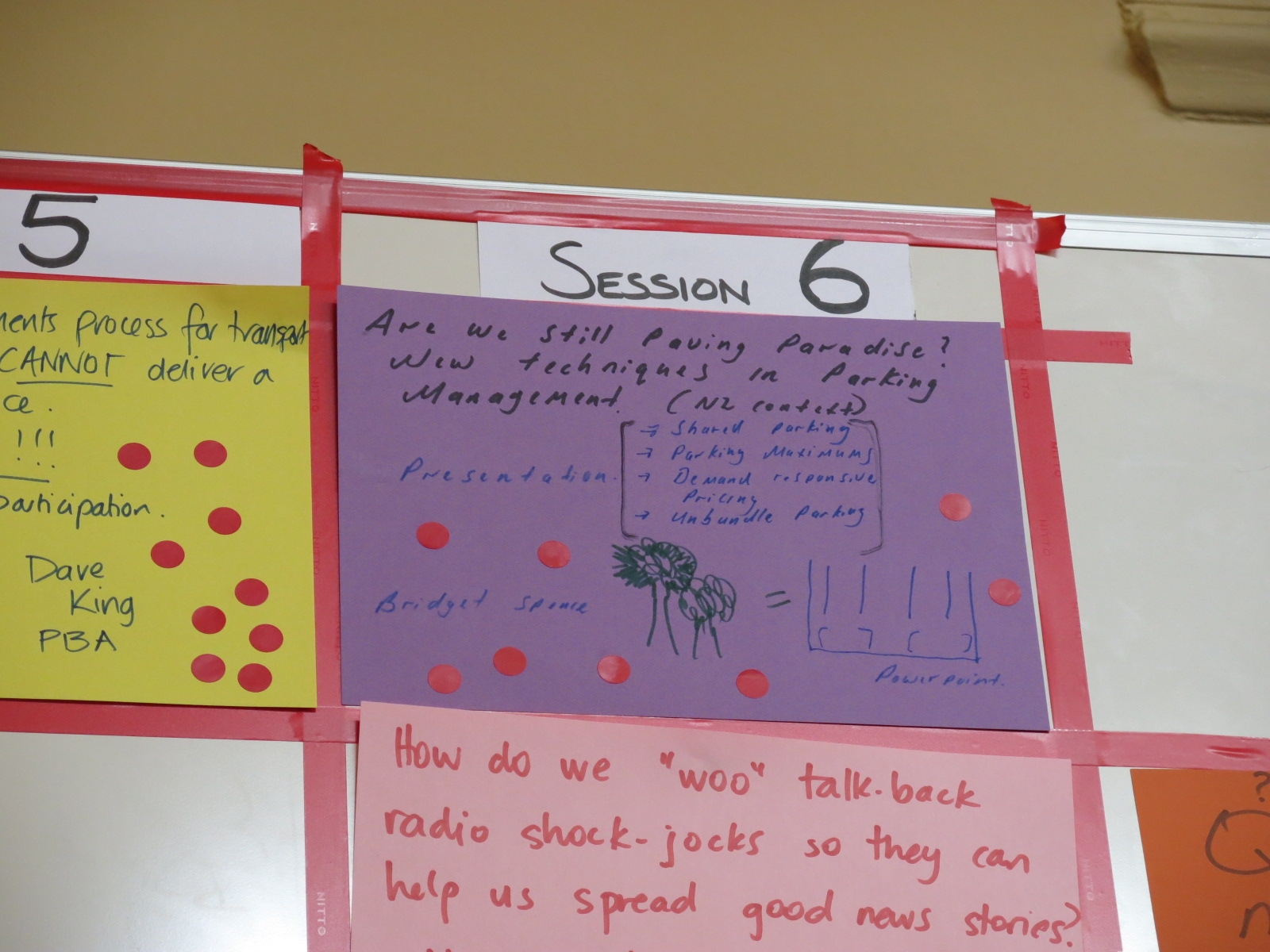Session Details
Room: Regent
Format: Presentation & Discussion
No. of attendees: 8
Host name: Bridget Spence (Senior Sustainable Transport Planner, City of Casey)
Scribe: Matthew Diemer
What was the session about?
Parking as an integral part of the transport system that also plays a major role in the shape of our cities.
There is a lack of research and general guidance for those tasked with parking management.
The new parking management paradigm is attempting to gradually move away from the ‘predict and provide’ approach: new policies such as unbundled parking, parking maximums, and demand responsive pricing are leading this change.
Technology is also aiding in improved user information and guidance
Demand Responsive Parking:
- Cost is directly related to demand, resulting in more efficient usage
Facilities higher turnover rates while maintaining 85% occupancy
Pioneered by SFpark scheme in San Francisco, where it was found that the program resulted in a reduction in amount of parking infringements
High impact on efficient parking management
Most effective in areas where alternative modes of transport are available
Parking Maximums:
- Important conversation starter about parking supply
May be restrictive or may still result in an oversupply (particularly if maximums are set higher than actual demand)
Removal of parking minimums tends to be more effective than setting maximums
Is it justified to charge for parking in all areas? Knowledge of parking usage activity can help to make this judgement. Making assumptions without knowing the activities that are taking place can do more harm than good.
Technology is helping to make these more informed decisions

